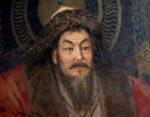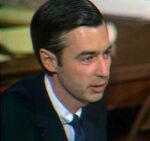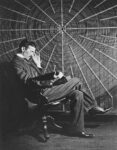It’s one of the bloodiest conflicts in human history. In 1851, the Taiping Rebellion exploded in Qing dynasty China, causing death on an unprecedented scale. Over 14 years of civil war, an estimated 20 million people died, more than were killed in the whole of WWI. It was, simply, the deadliest war of the nineteenth century, and it was all thanks to one man: Hong Xiuquan.
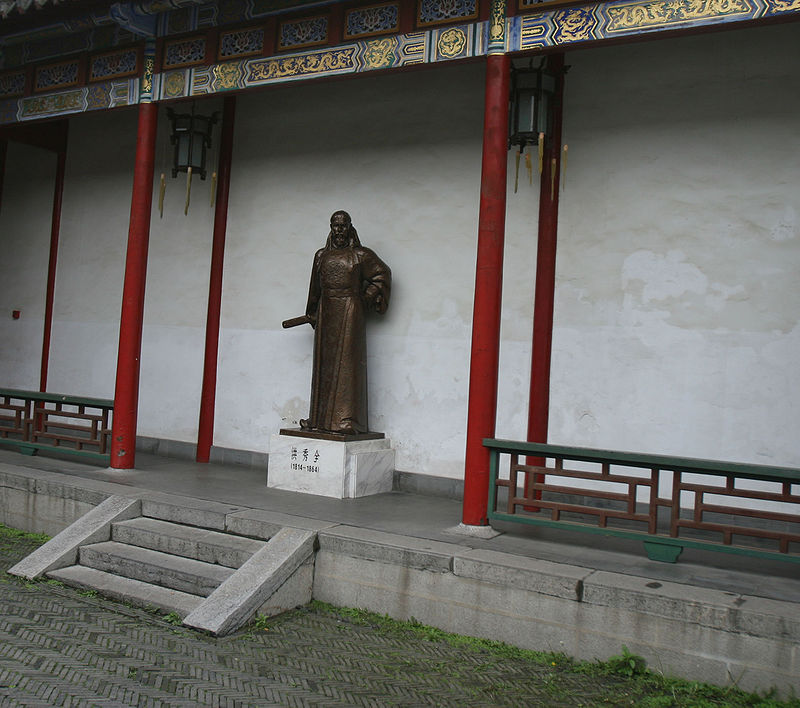
An ordinary village schoolmaster and aspiring civil servant, Hong was a nobody when he fell into a trance one day in 1837 and emerged convinced he was the son of God. Quickly amassing a fighting force of one million, he marched against the ruling Qing, eventually conquering most of southern China and establishing his own Heavenly Kingdom. Feted by Christian missionaries, admired and loathed at home, this is the story of the anonymous man who almost became ruler of China… and the unprecedented horrors that accompanied his rise and fall.
The Man in the Wilderness
In 1837, a young man in Guangzhou got some bad news. After decades of studying, he’d failed the entrance exam to the Chinese civil service for the third time.
Broken by the news, the young man suffered a mental collapse. He fell into a delirium for days on end, experiencing strange and terrifying visions.
That young man’s name was Hong Xiuquan. When he finally recovered from his breakdown, China would never be the same again.
Born in 1814 in the southern province of Guangdong, Hong Xiuquan had always felt he was destined for greatness.
The youngest of four children, he’d been famous among his small farming community for his supernatural intelligence.
In fact, Hong was so intelligent his community had banded together to raise funds for his schooling. It was hoped he would one day pass the civil service entrance exam.
If it sounds odd to you that an entire village would care so much about one guy passing one exam, that’s because you’re fortunate enough to not live in early 19th century China.
In Hong Xiuquan’s day, Chinese social classes were rigidly defined according to Confucius’s teachings. If you were born poor into a farming village, you died a poor farmer.
The only way out was the exam. Passing meant not just glory for you, but for everyone you knew.
So all of Hong’s neighbors pinned their hopes and dreams on him acing an exam with a one percent pass rate.
No pressure, right?
In 1827, after years of study, the teenage Hong traveled to the nearby city of Guangzhou to take the exam for the first time.
It was the moment his entire life had been building towards, so what happened? You guessed it: Hong flunked. Hard. Not only that, he flunked his retake just a few years later.
By 1837, when our story opened, Hong had traveled to Guangzhou to take the exam three times. When he failed the third time, his mental collapse was so great he lapsed into a coma where he was tormented by visions.
And what visions! Hong dreamed an old man with a beard gave him a sword and told him to slay all the demons in China. A middle aged man then instructed him in demon slaying, before sending him back to Earth.
When Hong finally recovered, he was kinda like “whoa, that was weird”, and went straight back to his day job as schoolmaster in his village.
It wasn’t until a chance encounter years later that Hong Xiuquan came to realize the significance of his visions.
In 1843, the now 29-year old Hong was back home after failing the civil service exam for a fourth time.
He was entertaining a cousin in his house, when the cousin suddenly frowned at the bookshelf and asked Hong what on Earth that was.
“That” was Quanshi liangyan, a Christian pamphlet written by a Chinese convert. Someone had given it to Hong while he was failing one of his exams in Guangzhou and he’d never looked at it.
But now his cousin had pointed it out, Hong gave the pamphlet a read.
What he read there blew his mind.
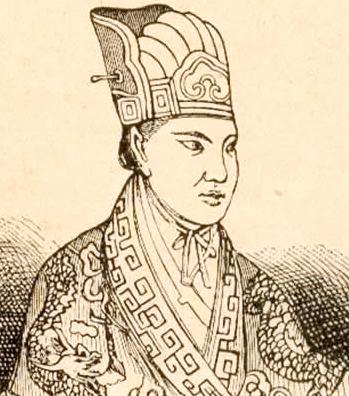
In the pamphlet’s description of the Bible, Hong finally found the key to his wacky fever dream.
The old man with the sword, that had been God. The middle aged man, that had been Jesus. The call to rid the world of demons? That had been God himself charging Hong with wiping out the Qing dynasty in China.
By the time he finished reading the pamphlet, Hong had experienced a revelation.
He was Jesus Christ’s brother, God’s second son. And it was God’s will that he overthrow the Qing and become ruler of China.
A Kingdom on the Edge
If there’s one thing we’ve learned during our many attempts to found a Simon Whistler-worshipping cult, it’s that people tend not to follow a random messiah unless they have a good reason.
On the surface, no-one in Qing China had a good reason for following Hong. The empire was stable, respected around the world. Not long before, the philosopher Voltaire had written:
“One need not be obsessed with the merits of the Chinese to recognise that their empire is the best that the world has ever seen.”
But scratch that shiny surface, and you’d discover a rot had set in that was nearly terminal.
The ruling Qing were ethnic minority Manchus who’d seized power in 1644. Although they’d since run China like any other dynasty, they were despised by the Han majority.
They’d also overseen an enormous population boom that saw China’s population double over the 18th century. This was accompanied by no expansion in civic infrastructure, so no extra sewers, roads, or job prospects.
On top of that, the First Opium War had just concluded in 1842, winning Britain not just Hong Kong, but also the right to flood China with highly addictive drugs.
By the time Hong declared himself the second son of God, China was a country that was creaking at the seams: humiliated on the world stage, and full of angry young men with no prospects for social betterment, marriage, or employment.
This was worst in the Hakka class, of which Hong was a member.
We didn’t mention this in the rush to get Hong’s story started, but Hong’s family came from an internal migrant class called the Hakka. Their ancestors had settled in their village some 800 years earlier, but they were still treated as outsiders, a humiliation Hakka across China faced every day.
Hakka. Remember that word. It’s gonna be important.
The last chess piece we need to get onto the board are the missionaries.
Protestant missionaries had been active in China before our story is set, but they’d been forced to work in secret and keep a low profile.
After the First Opium War, though, they suddenly had a lot more freedom to move and preach.
When Hong discovered the Bible in 1843, he was just one of millions of Chinese learning about the Good Book for the first time that year.
So, when Hong starts telling random villagers he’s the son of God in a few moments, people are going to be primed to believe in the Christian God in a way they simply weren’t before.
Not that Hong immediately amassed followers.
At first, his village was mortified by Hong’s new career path. He was even fired from his schoolmaster job in 1844 for calling Confucius a false God.
With his cruddy career over, Hong and a friend, Feng Yushang, decided to become traveling preachers.
This… wasn’t a success.
When the pair entered Guangxi province in 1844, Hong’s wacky claims of “OK, I’m God, you gotta worship me now,” won him exactly zero friends, and he and Feng soon became laughingstocks.
But there was one group prepared to listen.
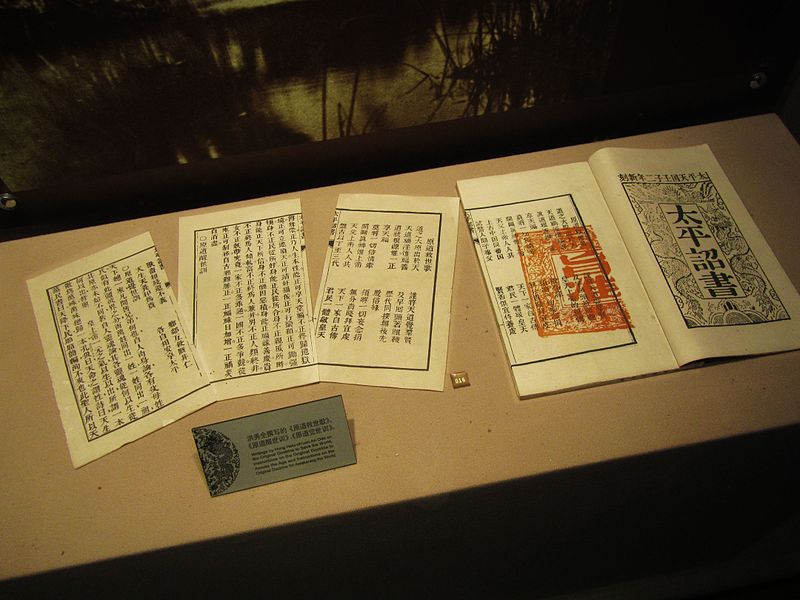
Hong’s Christian teachings found an audience among the outsider Hakka class. Whether because Hong was one of them, or just because they were fed up with Confucius, the Hakka began to band around the new messiah.
By the time Hong left to continue his preaching, he had enough followers in Guangxi that Feng stayed behind to organize them into an effective militia/cult.
Known as the Baishangdi Hui, or God Worshippers’ Society, the militia numbered only a few thousand. But they would soon become the core of an army that would lay waste to China.
A New Crusade
The next few years were spent with Hong honing his new religion.
In 1847, he studied under the American preacher I.J. Roberts, but the two fell out over Hong’s rejection of Christian concepts of forgiveness and focus on his own divinity.
Not long after, Hong returned to Guangxi and took charge of Feng’s militia. Together, they wandered the countryside, fine-tuning their message.
The more they walked, the more their anger grew.
In village after village, Hong and Feng witnessed the misery and deprivation of Qing rule.
Faced with all these wasted lives, Hong began preaching the abolition of private property. The end of social classes.
But his rhetoric didn’t stop at property. Hong started casting the Manchus – the ethnic group the Qing came from – as literal demons. Before long, he was prophesizing a Millennial final battle between good and evil that would take place in China.
This was enough to make Qing officials take notice. They began harassing the God Worshippers, hoping to stop people believing in Hong’s prophesized war.
Instead, they triggered it.
In July, 1850, government troops attacked a God Worshippers’ militia. Across Guangxi, Hong’s followers took up arms.
Eye for an eye became tooth for a tooth became life for a life. Things came to head in January, 1851, when government troops attacked Hong’s followers in the city of Jintian.
Nearby, some ten thousand God Worshippers gathered. Whipped up into a rage, they marched on Jintian. The Qing troops didn’t stand a chance.
By January 11, Jintian was overrun. The city fell to the God Worshippers. That day, Hong declared the creation of the Taiping Heavenly Kingdom, with himself as Heavenly King and Feng as King of the South.
No sooner was Jintian secured than the new Heavenly King’s army was marching up the Yangtze River, no longer the defenders, but the attackers.
If you were a Qing official, the next few months must’ve been terrifying.
When Hong started marching, his army was only a few thousand strong.
Before long, he was leading an army of one million.
There was just something about the way Hong had captured Jintian that made him seem legit. Suddenly, everyone with a grievance against the government thought he was their man.
Peasants joined the army. Hakkas. Intellectuals. Even tradesmen suffering the post-Opium War economic collapse.
Hong even let women join his ranks and march into the thick of combat. He encouraged his followers to grow their hair long, something punishable by death under Qing law.
As 1851 progressed into 1852, the insurgents steamrollered across the landscape. The Qing’s legendary armies scattered before them. Towns and cities fell without a fight.
Like ISIS sweeping across the deserts of Syria and Iraq, Hong and his religious fanatics appeared unstoppable. And, just like ISIS, the Taiping developed a reputation for brutality.
As city after city fell before them, the Taiping began massacring any civilians who didn’t join their ranks. Captured Qing soldiers were executed. Any ethnic Manchus taken alive didn’t remain alive for much longer.
By March, 1853, the Taiping were approaching Nanjing. As people tried to flee the city, Hong’s army weeded out the Manchus and had them burned alive. The flames flickering upwards from their melting flesh warned Nanjing of what was to come.
On March 10, Hong’s forces finally entered the city.
As Hong was carried in by sixteen bearers on a yellow silk chair, he declared Nanjing the new capital of the Taiping Heavenly Kingdom, and himself the rightful ruler of China.
Up in Beijing, all the Qing could do was look on in shock. Most of southern China had fallen to this demented cult, and now it’s self-proclaimed messiah had captured one of the empire’s former capitals!
All of a sudden, it was starting to look like Hong was maybe right. The world really was ending.
And for the Qing, the Apocalypse was here.
Our Jerusalem
After Nanjing was made the Taiping capital, a steady stream of Europeans began to trickle in, determined to observe the new, Christian kingdom in China and see if it was for real.
What they experienced there left them more confused than ever.
The Taiping kingdom was so puritanical it would have shocked even puritans. There were punishments for smoking, drinking, or dancing. All forms of sexual contact carried the death penalty, even between husbands and wives.
At the same time, Hong himself had retreated to an opulent palace, where he lived surrounded by a harem of beautiful women who attended to his every desire.
Then there was the religious aspect. The Taiping leadership was divided into “kings”, all of whom could supposedly communicate with God.
There was the King of the East, Yang Xiuqing, the King of the West, Wei Changhui, and so on. Each of them would fall into trances and speak in tongues, with official Taiping policy made during these spooky ceremonies.
But there was more to the Heavenly Kingdom than mere religious mania.
After Feng had died in battle during the march to Nanjing, Yang Xiuqing – the King of the East – had been elevated to Hong’s right hand man.
With Nanjing now conquered, Yang had effectively become the Prime Minister of the Kingdom. And he was slowly turning it into a functioning state.
Throughout 1853, Yang oversaw an intense program of railway building. He founded a Taiping postal service, began collecting taxes, organized the army.
He also instituted social reforms that prefigured Chairman Mao’s program a near-century later. Yang made men and women equal and eliminated private property.
So confusing was all this that Western powers didn’t know what to make of it.
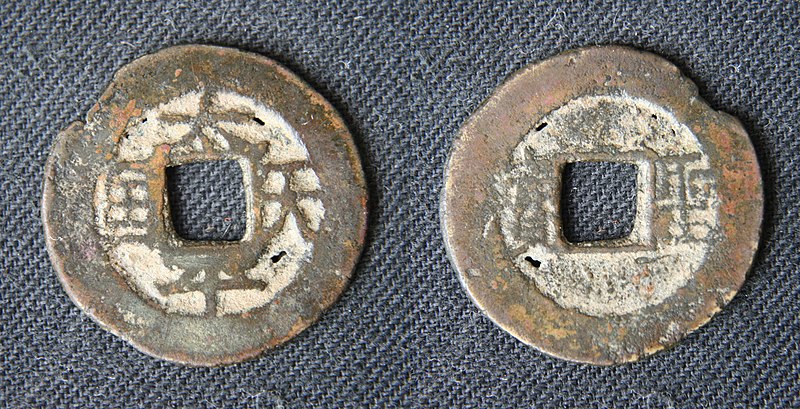
The Times of London called for Britain to back the Taiping against the Qing in Christian solidarity. Karl Marx first cheered the peasant revolution, then decided its violence was worse than class oppression.
The American preacher, I.J. Roberts, was at first so delighted with his old pupil that he hot footed it to Nanjing to live there, before leaving after a year in disgust at Hong’s unchristian habits.
This Western attention was encouraged by the Taiping. One of Yang’s goals as minister was to get American, French, and British businessmen onside, and try to woo their governments into supporting his and Hong’s new state.
It helps to think of the Taiping as similar to ISIS. Like the terror group, they believed they were the true voice of their religion. Like ISIS, they hoped others of the same religion would flock to them and help their cause.
And, just like ISIS, they used religion to justify unbelievable violence, even against their own people.
The cruelest example of this barbarity came in 1855.
Yang was starting to challenge Hong’s authority. The minister had quietly built his own powerbase in the Taiping army, and was now claiming God was speaking through him, not Hong, and that the Heavenly King himself was merely an imposter.
This would turn out to be a fateful move.
On September 2, Hong ordered the King of the West, Wei Changhui, to exterminate Yang.
Over two bloody months, Wei slaughtered all of Yang’s followers within Nanjing. Soldiers, civilians, Yang family members… all of them were killed in a non-stop orgy of bloodshed.
It’s estimated today that 27,000 Taiping citizens died in the purge. When it was over, Hong had Wei put to the sword too.
In the aftermath, Hong switched the entire way his government functioned. People were now promoted based not on merit, but on their personal loyalty to Hong.
Any pretense at equality was gone. The Taiping Heavenly Kingdom was no longer even masquerading as a utopia. It was a brutal dictatorship where everyone’s lives were in the hands of a religious fanatic.
Fortunately, it also wouldn’t be around much longer.
Armageddon
With the Taiping state eating itself like a hungry dragon devouring its own tail, now might be the time to ask where the Qing were in all this.
The answer is… fighting the French.
Yep, with impeccably bad timing, the French had chosen to start the Second Opium War just as Wei was turning Nanjing into an abattoir.
Rather than press the opportunity, the Qing were instead stretched almost to breaking point.
But there had been a change in the winds of fate. Not a perceptible one, not just yet, but one that would ultimately become a hurricane.
In the contested areas of Taiping rule, local militias had started to spring up that were loyal to the Qing.
Known as the New Armies, these militias were grassroots affairs focused on local issues. Although they fought under the Qing banner, they were basically run by warlords who hated the Qing a little less than they hated the religious nutjobs on their doorstep.
In normal times, the Qing would have tried to crush these toy soldiers. But times weren’t normal. Instead, the Qing forged an alliance with the New Armies, on the implicit understanding that the warlords would be left to their own devices.
It would turn out to be the best decision the distant Qing emperors ever made.
As the New Armies grew, alarm bells were also ringing in Western capitals about the Taiping.
In 1861, the Taiping armies tried to take Shanghai, an important new trading port in the aftermath of the First Opium War.
The Taiping failed in their assault, but it had convinced the British and the Americans something needed to be done. They began arming the Qing forces and training them, just as the official Qing army was hooking up with the New Armies.
In no time at all, the revitalized Qing were ready to give the Heavenly Kingdom hell.
And Hell they gave them. Really, it’s hard to imagine an underworld much worse than the inferno unleashed on the Taiping.
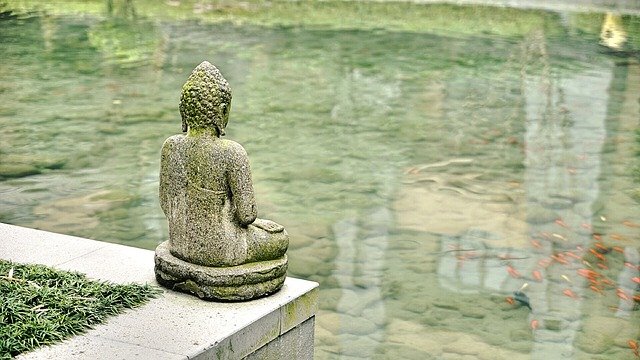
After a decade of Taiping strategies like “shoot everyone, shoot them some more, and then set the survivors on fire”, the Qing armies were through with the rules of war.
From now on, the Qing would raze any town they passed through to the ground. They would mass execute prisoners. They would put civilians to the sword.
Hong had predicted an apocalyptic Final Battle in China? Well, the Qing were gonna give him one.
For two whole years, southern China burned.
The New Armies raped and pillaged their way across the landscape. The Qing and Taiping destroyed so many crops that severe famine set in.
There were peasant rebellions. Plagues. The mass destruction of property. It’s said that over 600 cities were wiped from the map.
At first, the outcome of this renewed war was uncertain. A late surge by the Taiping actually got their armies to within 70km of Beijing and the seat of Qing power.
But slowly, surely, the tide began to turn. The winds of change had finally reached the force of gales. And the Taiping wave was swept all the way back to Nanjing.
By summer, 1863, the Qing armies were encircling the Heavenly capital. Supply lines were cut off. Escape routes blocked.
Come May of 1864, the Taiping rebel stronghold was completely isolated, it’s population starving.
The Qing armies had done the impossible. They’d recovered from the onslaught to beat the Taiping at their own game.
Now it would just take one final push to bring about Judgement Day.
Judgement Day
At this stage, you might be wondering: “where the heck is Hong Xiuquan?”
The answer is, exactly where we left him all the way back in 1856. Inside his palace in Nanjing, completely unable to grasp reality.
After the murder of Yang and his supporters, Hong had disappeared completely from public view, retreating into a world of orgies and vice while his kingdom burned.
Policy making had been left to squabbling generals, with the result that the Qing fightback went unanswered until it was too late.
By 1862, the few Taiping leaders able to speak to Hong had urged him to evacuate the city. To fall back and regroup. To them all, Hong had said the same thing.
No-one would leave. Not while the Taiping had God on their side.
So people stayed. They stayed as the Qing armies strangled the supply lines. They stayed as food ran out and starvation gripped the city.
Come 1864, even Hong’s most devoted disciples could see the Taiping were in trouble.
Three years before, a Qing siege of the Taiping city of Anqing had resulted in industrial-scale cannibalism. Human flesh had been sold in local markets.
Desperate to avoid a similar situation in Nanjing, Hong’s advisors begged him to do something. Finally, the second son of God agreed.
Leaving his palace for the last time, Hong appeared to his people and declared God would provide for them. Like Moses in the desert, they would eat manna sent from the Heavens.
He ordered his people to go and gather this “manna” wherever they could find it.
What the starving prisoners of Nanjing found were weeds. Weeds and wild-growing, inedible berries.
Nonetheless, they gathered them all and returned them to their leader. Hong smiled beatifically at their bounty, blessed the food and had it cooked.
Finally, the Heavenly King took his bowl of “manna”, ate from it…
…and promptly died of food poisoning.
Turns out those inedible berries were really inedible. Rather than manna, Hong had provided his people with the Chinese version of Jonestown-brand Kool Aid.
Now, there are some who dispute this account of Hong’s death. There’s another school that says he intentionally committed suicide, and yet another that says he died after contracting an illness.
In practical terms, though, it didn’t really matter.
In the aftermath of Hong’s ascension to Heaven – or maybe his descent to Hell – his teenage son, Hong Tianguifu was put on the throne.
But by now it was hopeless. The Qing were literally at the gates. These were the last days of Sodom, and the brimstone was already on its way.
On July 19, 1864, the Qing retook Nanjing in a three day running street battle.
It was at that time the bloodiest battle humankind had ever seen.
There were house by house massacres as Nanjing fell. Mass suicides as Taiping true believers gathered together and set themselves on fire by the thousands.
It was the Somme, the Jonestown Massacre, and the Battle of Stalingrad all rolled into one. It was death and destruction on a scale mankind had never seen before.
The seal had been opened. Judgement Day was here at last.
After 72 hours of carnage, the city was pacified.
In the three days alone, over 100,000 people had died. But still the killing didn’t stop. The Qing mass executed all their prisoners. They forced the surviving Taiping leaders to write confessions and then executed them too.
Finally, they exhumed Hong’s corpse from its resting place inside his palace and had it cremated. Tradition says they fired his ashes out a cannon to deny him a resting place.
Although sporadic fighting would continue until 1866, the Taiping Rebellion was officially over. Its Heavenly King was dead. Its Heavenly Kingdom lay in ashes.
In the 14 years of its existence, the Taiping Rebellion is thought to have killed somewhere in the region of 20 million people, more than died during WWI.
It’s probably the deadliest civil conflict to have ever gripped the world. The US Civil War? That killed around 750,000. Compared to the fighting in China, it was barely a blip.
Not that the deaths stopped with the rebellion’s end.
About 75 years later, a man obsessed with the Taiping Rebellion was inspired by Hong’s life to launch his own revolution in China.
Known as Mao Zedong, he would go on to oversee a regime that, at an absolute minimum, killed another 20 million people.
Hong Xiuquan may seem like an obscure figure in the West, a Chinese fanatic who committed war crimes in some far away land many decades ago. But in many ways, our world is still living with his legacy.
He may not be as famous as Hitler or Stalin or ISIS, but Hong Xiuquan was as terrible as any of them. Maybe it’s time we found the space to remember his victims, too.
(Ends)
Sources
Excellent podcast on the rebellion: https://www.bbc.co.uk/programmes/b00yqvqt
Good overview of Hong Xiuquan’s life: https://www.britannica.com/biography/Hong-Xiuquan
(excellent resource on the rebellion’s formation and early years): https://www.facinghistory.org/nanjing-atrocities/nation-building/seeds-unrest-taiping-movement
(references to the famine and peasant uprising that started it all in 1851): https://www.thoughtco.com/what-was-the-taiping-rebellion-195606
https://www.bbc.com/bitesize/clips/zg3j4j6
(some good details on beliefs, including styles of dress): https://www.nytimes.com/1996/02/04/books/unheavenly-kingdom.html
https://www.bbc.com/news/magazine-19977188
Cannibalism: https://www.cam.ac.uk/research/news/portrait-of-a-bloody-siege
Mao and Taiping: http://www.chinadaily.com.cn/english/doc/2004-09/03/content_371353.htm
Mao’s death toll: https://www.nybooks.com/daily/2018/02/05/who-killed-more-hitler-stalin-or-mao/

